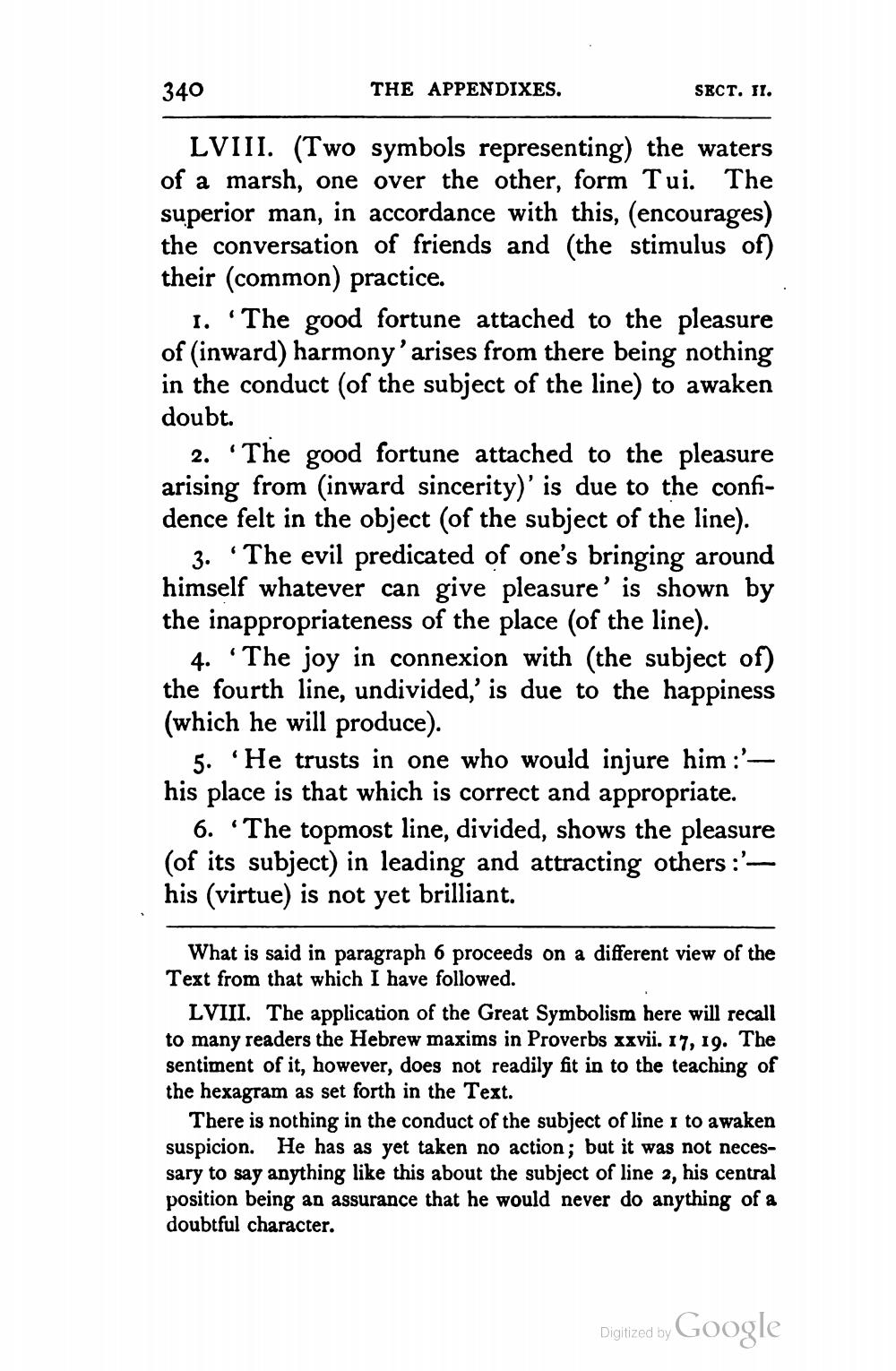________________
340
THE APPENDIXES.
SECT. II.
monactice.
LVIII. (Two symbols representing) the waters of a marsh, one over the other, form Tui. The superior man, in accordance with this, (encourages) the conversation of friends and (the stimulus of) their (common) practice.
1. The good fortune attached to the pleasure of (inward) harmony'arises from there being nothing in the conduct (of the subject of the line) to awaken doubt.
2. “The good fortune attached to the pleasure arising from (inward sincerity)' is due to the confidence felt in the object (of the subject of the line).
3. “The evil predicated of one's bringing around himself whatever can give pleasure' is shown by the inappropriateness of the place (of the line).
4. “The joy in connexion with (the subject of) the fourth line, undivided,' is due to the happiness (which he will produce).
5. 'He trusts in one who would injure him :'his place is that which is correct and appropriate.
6. The topmost line, divided, shows the pleasure (of its subject) in leading and attracting others :'his (virtue) is not yet brilliant.
What is said in paragraph 6 proceeds on a different view of the Text from that which I have followed.
LVIII. The application of the Great Symbolism here will recall to many readers the Hebrew maxims in Proverbs xxvii. 17, 19. The sentiment of it, however, does not readily fit in to the teaching of the hexagram as set forth in the Text.
There is nothing in the conduct of the subject of line 1 to awaken suspicion. He has as yet taken no action; but it was not necessary to say anything like this about the subject of line 2, his central position being an assurance that he would never do anything of a doubtful character.
Digitized by Google




